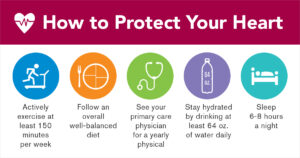
Introduction
When it comes to achieving excellent skin care, many people focus solely on external factors like skincare products and routines. However, the key to radiant and healthy skin lies not only in what you apply topically but also in the foods you consume. A well-balanced diet plays a crucial role in nourishing your skin from within. In particular, incorporating the right oils into your diet can provide a multitude of benefits for your skin. In this comprehensive guide, we will explore the importance of oil in skincare and provide you with valuable tips on how to incorporate oil into your diet for excellent skin care.
1. Understanding the Significance of Oil for Skin Health
Essential Fatty Acids: Building Blocks of Healthy Skin
Essential fatty acids, such as omega-3 and omega-6, are vital for maintaining the health and integrity of your skin. These fatty acids contribute to the formation of the skin’s natural barrier, which helps retain moisture and protects against external aggressors. Including oils that are rich in essential fatty acids in your diet can improve skin elasticity, reduce inflammation, and promote a more youthful appearance.
2. Antioxidants and Vitamins: Skin-Nourishing Properties
Certain oils are packed with essential vitamins and antioxidants, which are crucial for maintaining healthy skin. For instance, vitamin E acts as a powerful antioxidant that helps protect the skin from free radicals and environmental damage. Oils like avocado oil and almond oil are excellent sources of vitamin E, aiding in the regeneration of healthy skin cells and promoting a glowing complexion.
Tips for Incorporating Oil into Your Diet for Excellent Skin Care
1. Choose Healthy Cooking Oils
Start by replacing unhealthy cooking oils, such as vegetable oil or margarine, with healthier alternatives like olive oil or coconut oil. These oils contain beneficial properties that can nourish your skin from the inside out. For example, olive oil is rich in antioxidants and monounsaturated fats, promoting skin elasticity and reducing the signs of aging.
2. Embrace Omega-3 Rich Oils
Omega-3 fatty acids are well-known for their anti-inflammatory properties, which can help alleviate common skin conditions such as acne, psoriasis, and eczema. Include oils like flaxseed oil, chia seed oil, or even fish oil supplements in your diet to boost your omega-3 intake. These oils not only benefit your skin but also support overall health.
3. Enhance Your Salads and Dressings
Salads are an excellent way to incorporate oils into your diet for skin care. Add a drizzle of extra virgin olive oil, walnut oil, or avocado oil to your salads for a delicious and nutritious boost. These oils not only enhance the flavor of your salads but also provide essential fatty acids and vitamins that nourish your skin.
4. Enjoy the Goodness of Healthy Nut Butters
Nut butters, such as almond butter or cashew butter, are not only a tasty snack but also a great source of healthy fats. Spread some nut butter on whole-grain toast or include it in your smoothies for a dose of skin-loving nutrients. The healthy oils present in these butters can help maintain skin moisture and promote a radiant complexion.
5. Snack on Nuts and Seeds
Nuts and seeds are packed with oils that offer numerous benefits for your skin. Almonds, walnuts, chia seeds, and flaxseeds are excellent choices for a skin-nourishing snack. These nutrient-rich foods provide a good amount of omega-3 fatty acids, vitamin E, and other essential minerals that contribute to healthy skin.
Conclusion
Achieving excellent skin care involves more than just external treatments. A diet that includes essential nutrients, vitamins, and healthy oils can significantly enhance your skin’s health and appearance. By incorporating the right oils into your meals, cooking techniques, and snacks, you can harness their powerful properties to nourish and protect your skin from within.
Remember to prioritize high-quality, cold-pressed or extra virgin oils whenever possible, as they retain more of their natural nutrients and are free from harmful additives. Additionally, be mindful of portion sizes and balance your oil intake with a variety of other nutritious foods to maintain a well-rounded diet.






